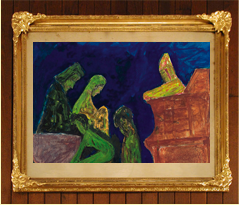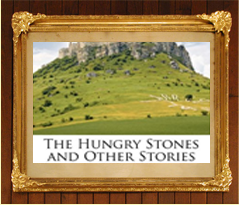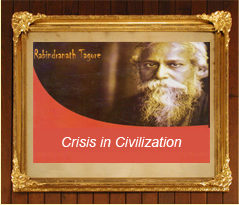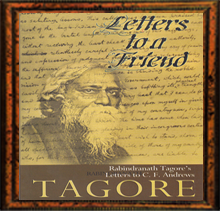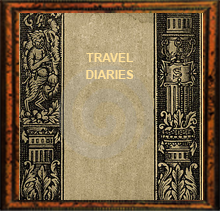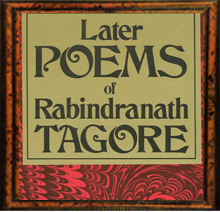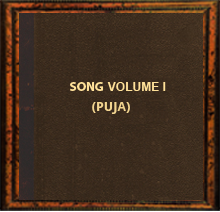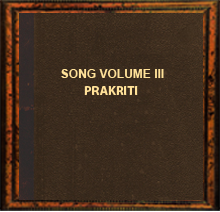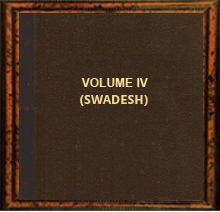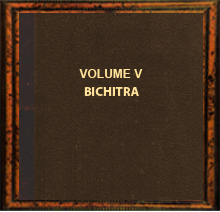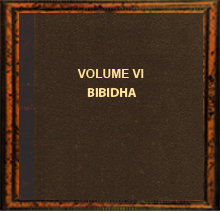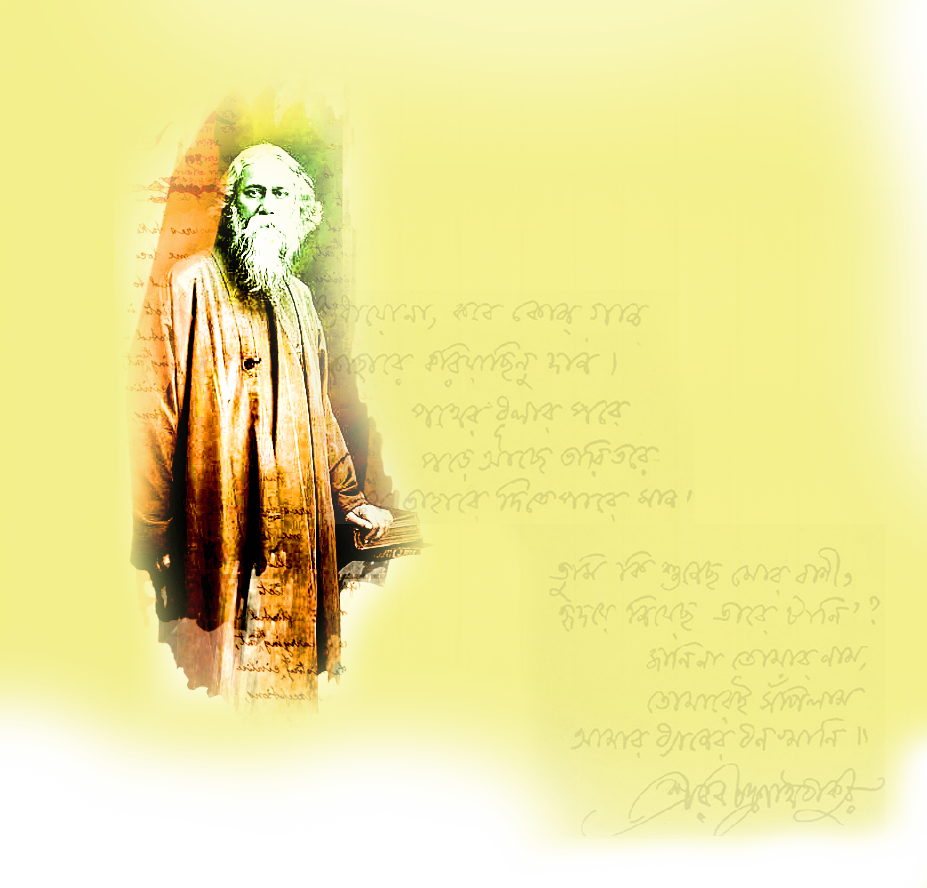

Volume II (Love)
A Note to Readers:
Great family tragedies befell Rabindranath between 1902 and 1907, which however could not diminish his genius of writing spontaneous world class poems and songs of great diversity and depth and other literary creations of the most supreme order, nor lessen the fervor of his grand participation in copious national and international commitments and undertakings, everyday of his most illustrious life. The poet lost his wife in 1903 when he was forty two, and lost three of his five beautiful children after his wife’s death, yet he was supremely creative during all these years. The only silver lining in these darkest hours, heart breaking events, was that the poet was made a Nobel Literature laureate in 1913 and the rest was history.
It has been alleged that Rabindranath was a boring repetitive poet in certain quarters. To this we will add the observations of many 19th century great men and women of letters, most notably Pearl S Buck, US Nobel Literature laureate who observed in her article “A World Poet” –
“Tagore stands to us for pure beauty, for the universal. His poetry, his poetic prose reached deep and far because he spoke to us of mind and soul leading the human spirit to God. In a very real sense he was the world poet. His words - the tools which he used – are sensuous but not sensual comprehending not only love of God and relationship between man and God but human love. The profound sense of beauty pervades Tagore’s work and ennobles that and makes it understandable to every human heart. The world needs such poets.”
Johan Bojer of Norway reminisced about Rabindranath’s poetry, love and religion:
“His poetry belongs to no school-the flowers of Bengal were created by the sun and rain.
His love for his fellowmen is not the love of the Samaritan but the Song of Songs. He knows that just as dew drop in the grass may mirror the Heavens, so the human mind may reflect God.
His religion knows neither hope nor fear. It dwells in the calm of the Spiritual Universe which nothing but the human heart can comprehend.”
The French universalist and Nobel Literature laureate Romain Rolland summed up:
“He has been for us the living symbol of the spirit of Light and Harmony, the great free bird which soars in the midst of tempests, the song of Eternity which the Ariel makes to vibrate on his golden harp, above the sea of unloosened passions.
In tragic hours, Tagore is the clear-eyed and undaunted watchman of his own peoples and of the world.
All that we are and all that have been created have had their roots or their branches bathed in the great
Ganges of Poetry and Love.”
If we take into consideration that Rabindranath composed about 2300 songs and equal numbers of poems-some of the themes, words and phrases will seem familiar. One of the greatest scriptures, the Bible has many repetitions, but do they lessen its value? But speakers of or singers in Bengali language will know that apart from his style, Rabindranath has managed to leave a different emotion or appeal to listeners in most of his songs. His Toppa genre of songs are a class by themselves. These semi-classical Tagore songs cannot be sung by singers who did not have a training in Indian classical music. He crafted Folk, Kirtan, Bhatiyali and Baul styles of singing in his songs. He experimented with north and south Indian Ragas and created new Taal or beats after making an exhaustive use of the existing ones. After his first return from England, he also composed in Western style music, with Bengali lyrics and there are a bunch of his songs available in piano notations.
His PUJA (Worship) and PREM (Amore) songs, his own groupings, are at times so similar that we cannot always differentiate which one is in which category. For example, “Now I earned your company” has been classified in PUJA which can be a PREM song as well. Then again, “O beggar, you have made me a beggar” has been classified in PREM, which distinctly reminds of a song from Gitanjali, can be very well classified in PUJA. Such instances abound. Some of his PRAKRITI (Seasonal) songs could be PREM (love) songs as well for they speak of union with or separation from the beloved. As for the charge that Rabindranath is a boring poet is untenable. The allegation that he was a hermit, mystic only is also false. This reminds us of the parable of the 19th century Bengali saint Sri Ramakrishna. “An elephant passed by a group of blind people. One got to touch its trunk and said it was the trunk of a tree. Another touched one foot and said it was a pillar. A third blind man similarly missed the mark by a mile. Nobody was near the truth, nobody knew it was an elephant.”
Another phenomenon must be discussed while we are into Tagore songs, his song lyrics. If we climb the Mount Everest that is the GITABITAN or ORCHARD OF SONGS, we see such skyline, such cluster of stars and galaxies (figuratively), that common people are unaware. The appeal of Tagore songs is not in melodies alone, his lyrics are a mature distillation from the scriptures and literature of all major world religions and cultures, in particular the Upanishads and Vedanta System of Philosophy. National Professor, Acharya Suniti Kumar Chattopadhyay thought Rabindranath was the “Supreme Commander Wordsmith of the Universe. The muse of the language and arts had shown all her beauty to the poet even as a devoted wife to her husband.”
As Rabindranath meditated on a transcendental godhead or Brahman, many of his paeans are psalms that can be sung in a church, synagogue or mosque, in a prejudice and fanaticism free world. A UK university professor wrote, “Up to 400 Western composers borrowed from Rabindranath with or without acknowledgement.” Literature Nobel laureates of the twentieth century were profoundly influenced by Rabindranath Tagore that the search engines are not aware of, and in our lifetime, at least one famous published poet copied a Tagore poem in parts and used it as own composition in a very important public event, without batting an eye.
To this we shall add the testimony of Father Pierre Fallon, a Member of the Society of Jesus from Belgium who was educated in Louvain University, passed MA in Bengali at Calcutta University and taught in St. Xavier’s College and Jadavpur University in Calcutta.
“But a misunderstanding must be dissipated: Tagore’s reputation as a predominantly ‘mystic’ poet should be exorcised. Tagore was infinitely versatile, and to give complete idea of his range one must bring in the most varied types of lyric poetry. There is in his poetry the joie de vive of the early Musset and the sensuousness of a Swinburne, the ethereal dreaminess of the author of ‘Namouna’, the meditative and intimate moods of Lamartine, the flights of romantic fancy of a Shelley, and the verbal magic of a Hugo, the Wordsworthian communion with Nature and the perfect craftsmanship of Tennyson in his medieval ballads. More aptly perhaps, his poetry can be compared with the ever changing art of Goethe with its universal creative range. The West knows Tagore only as author of Gitanjali and believes this to be his greatest work: it is great indeed but representative only of one aspect of Tagore’s poetical creativeness. Till the other aspects are revealed to them, Western readers will not know the real greatness of Rabindranath and this would be a major loss to them.”
We are gradually and modestly trying to clear the misconceptions through the pages of this web site.
The explicit descriptions of female beauty and corpus features of earliest Sanskrit poets did not find their echo in Rabindranath. In Urvashi, he only imagined the heavenly nymph was in her birthday suit in one stanza of the poem. We do not expect Rabindranath to go beyond that. He created more than 100 songs on Bengal’s Rainy Season alone. A medley of seasonal flowers, forest foliage, abounding greenery, incessant rains, wind, cloud and sky, interactions of these features upon one another and varying emotions of human heart were his main ingredients. Similarly he composed about a hundred songs on the Spring season. The flora, fauna and shrubbery have changed this time. In summer and autumn different groups of blossoms and verdure fill the bouquet of his songs. The longing of the separated couples is very well demonstrated in the rainy season or in the south wind of spring which kindles feelings of desire. There he was traditional with the Sanskrit poets or poets like Vidyapati, who just preceded him and lamented, “The month is Bhaadra (July-August), full of monsoon rains and my living quarter is empty.” In the “Twelve Monthly Ordeal of Fullara”, the wife of a game hunter, Kabikankan (Poet laureate) Mukunda Chakravarty mused: “In the honey laden Spring, the south wind is amorously gentle. Bees are drunk with nectar and damsels are filled with burning desire.”
Rabindranath’s songs with diverse melodies, beats and celestial lyrics break the monotony many times over. There is pathos, but there is also excitement. If he sounds depressed, next moment he lifts up. The poet had been correct in predicting that if all else of his creations perish, his GITABITAN or the Orchard of Songs will survive the test of time. This is no less than Palgrave’s Golden Treasury of Poems. This is “The lunatic, the lover and the poet are of imagination all compact.” Rabindranath has never disappointed in his songs, rather he uplifted a nation, paying attention to the endorsements of Mahatma Gandhi and Aung San Suu Kyi in the film.
Translations, concepts and interpretations are the responsibility of the creator of this web site. They are by no means the last word in translation and meant to let the non-Bengali speaking enthusiasts have a glimpse into the world of the poet – fraught with purity, rich imagination and supreme control of words. Bengali alliterations cannot be easily translated or emulated in English, but we tried to retain similes, metaphors and other rhetoric as much as the concepts will allow. We tried not to overdo or unpardonably distort the intrinsic thought.
Other poets of Bengal on Rabindranath:
Satyen Datta:
The poet of Bengal is singing in the world the paean of an epic life.
The life and livelihood of a Bengali are not inane, useless.
We look to the future with a heart filled with hope and joy.
Bengalis will do God’s bidding through His grace.
সত্যেন দত্ত :
বাঙ্গালীর কবি গাহিছে জগতে মহাজীবনের গান।
বিফল নহে এ বাঙ্গালী জীবন বিফল নহে এ প্রাণ।
ভবিষ্যতের পানে মোরা চাই আশাভরা আহ্লাদে।
বিধাতার কাজ সাধিবে বাঙ্গালী ধাতার আশীর্বাদে।
Atulprasad Sen:
Rabi played on your lyre and earned a laurel from the world.
The whole world makes a pilgrimage mother Bengal, at your feet.
(Poet APS is implying Vishwa Bharati at Shantiniketan, international university founded by Rabindranath to be a place of pilgrimage for the world).
অতুলপ্রসাদ সেন:
বাজিয়ে রবি তোমার বীণে আনলো মালা জগত জিনে।
তোমার চরণ তীর্থে মাগো জগৎ করে যাওয়া আসা।
কামিনী রায় :
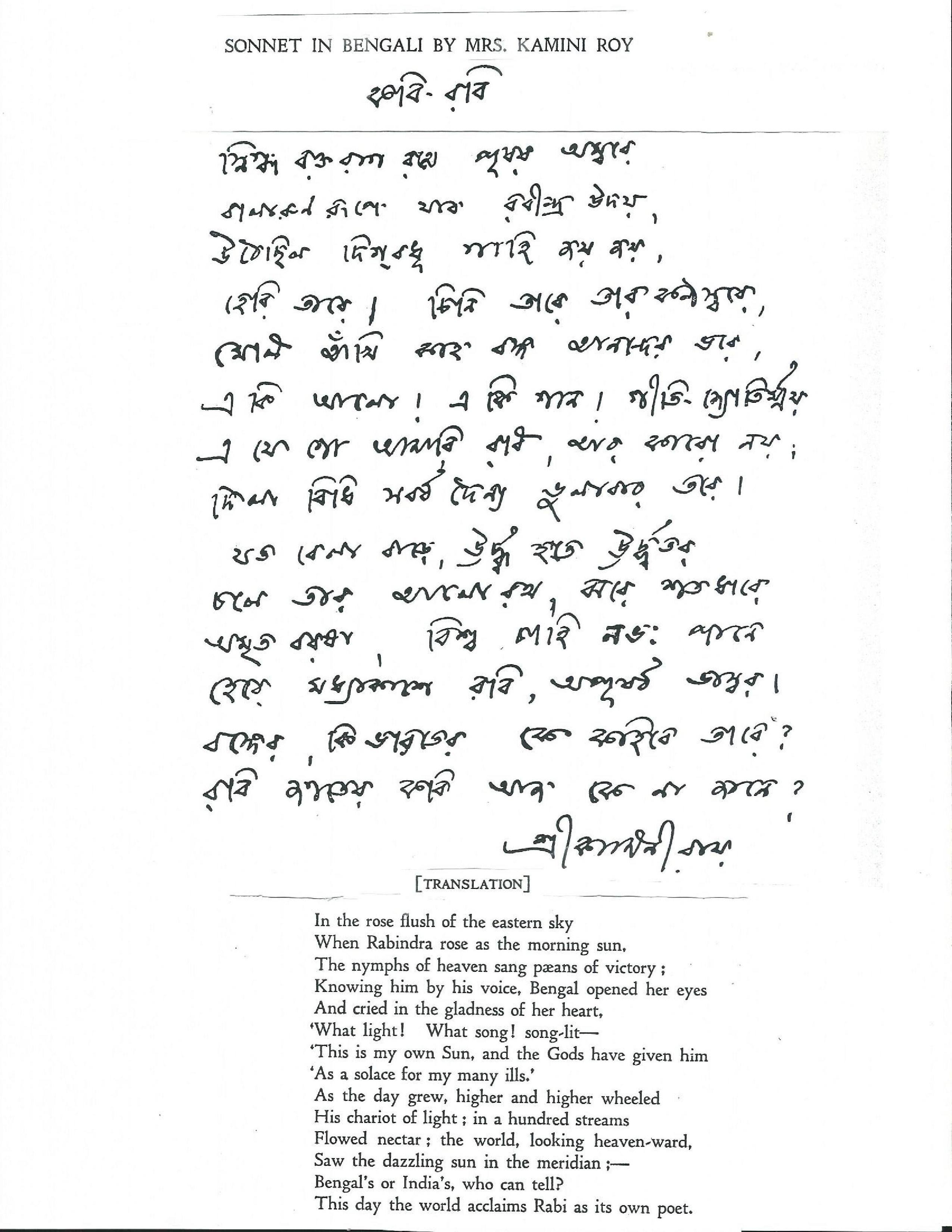
30 GITABITAN PREM (LOVE) SONGS
1. Let my love like sunlight (Aamar prem rabi kiron heno…)
Surround you and give you a freedom illumined. (Original English couplet by the poet)
2. Not in front of eyes you are nigh (Tumi ki keboli chhabi….)
But there you are, in the iris of the eye.
That is why-I see your likeness
In the luster of greenery, in the azure sky,
My universe and your heart in unison do cry.
Unbeknownst to me and everybody
Your tune still enriches my life's melody.
You are the muse in the heart of the poet.
You are not extinguished, not quite, not yet,
You are not merely a portrait, not quite, not yet. (Abridged)
3. What ruinous course did you chart this somnolent night? (Tumi kone bhangoner pothe..)
My battered possessions got blessed at the touch of your feet.
I shall weave these remains in a necklace of rubies blood red,
Concealing the secret hurt in my heart, they will glitter and osc333illate.
You took up my sitar accompaniment and tuned it with a hard twist,
When the strings snapped, you abandoned the belabored feat.
The silent music it gently wafts remains your only gift,
The spring wind carries in its vortex, no melody, but a forlorn beat.
4. I did behold in my eye, suffused by the outer light. (Chokher aaloy dekhechhilem)
Today when the light is put out, I see by my mind’s sight.
Earthly entreaties can no longer secure you,
Still all my heart is occupied by you,
I beseech you in my own consciousness illumined.
You were my sole playmate in the play hut,
A ruinous storm ensued and tore the toys apart.
Let the play cease then, let the great fair of life begin,
The metal strings of the violin snapped, only my heartstrings sing.
5. I shall sing for you, who force me up from sleep. (Ogo dukha jagania tomay gan)
Startling my inner being, awake you me keep,
And stir up my sorrows hidden in the deep.
When darkness gathers, ships return to shore, birds fly back to nest,
Only my heart knows neither respite nor rest.
At my work during busy noontide,
You evoked memories that caused my tears to glide.
Yet you touched my heart, filling it with nectar,
Then you chose to move away far, very far,
Methinks you conceal yourself behind my hurt.
6. Smile of the moon cannot be contained, liquid light overflowing barrier, (Chander hasir bandh)
O tuberose, the night queen, spill out the sweet nectar of your odor.
The amorous wind is insane, can’t keep up with the bevy of maiden friends,
Happy go lucky with every flower in the bower, in its beat, a joyous trend.
The forefront of the blue sky today appears coated with sandal paste.
A pair of swans from flock of the muse has unfurled their wings abreast.
Gathering pollens from heavenly blooms, you scatter on the earth, O moon!
And light up the glow of the nuptial lamp of a divine nymph to offer a boon.
7. A day of my life was washed away with tears, (Aamar je din vese gechhe)
Its penumbra on the base of the monsoon cloud appears.
On that day the music ceased, to point of no return got our separation,
The east wind today, alas, the rueful wind only wafts the lamentation.
There was a day, intertwined with unbridled happiness and sweet sorrow,
Life was smooth like only two strings on a violin, there was no tomorrow.
Lugubrious were the notes, as the strings of the violin broke,
The melody gradually was silenced in one fateful stroke.
8. Today my ladylove's likeness is drifting in the sky. (Aamar priyar chhaya….)
The wind is moisture-laden and heavy with a sigh.
My darling takes a peek through the cloud cluster,
Who is she trying to locate beyond the vesper?
Anon she realizes the lamp has gone out in her chamber.
With the fragrance of the rain-dripping groves in the glade,
An imaginary garland my honey weaves befitting a bridal bed.
She loses herself when rains streaming
Suffuse the sky and conceal her feeling.
The end of my beloved’s garment flutters,
With the exuberance of the greenery abounding.
9. O bride, so beauteous, (Ogo bodhu sundari….)
You are charmingly mellifluous,
On a vernal eve in a leafy bower,
A wreath of Mallika sprouts you embrace.
Accept the compliments of a Champa
As the tidings get festive and joyous.
I offer fragrance, red pollen of Palash, sandal-cool
Moonlight in the spring celebration basket,
A pirouette by Parul and Shiris, and a delicate orchid bracelet.
A bemused bamboo grove begs a benign bestirring,
The south wind courts tremulous leaves, in an act of wooing.
With the dreamy collyrium of the sky's deep azure,
Fashion your eyelashes in the icon of your lover.
Mallika, Champa, Palash, Parul and Shiris are among the spring blooms of Bengal.
10. One of my secret revealed to the flute, is known to the flute only, (Aamar ekti kotha banshi.)
Heart’s abyss full, no one had a clue, only I whispered to the flute softly.
I did not have a wink of sleep at the dead of night.
I stared at the stars, gazing at me, glittering bright.
Thus I spent the night along, sans company in my slumber-less eon,
I kept the flute awake playing song after song.
11. My mind on its own observes the abiding sweetness in its cloister. (Aamar mon cheye roy…)
My eyes no longer wonder wanderlust, seeking the lissome luster.
As I gazed intently, the lyre struck melodies in my heart's chamber,
The band played a madrigal at the crescendo of desire grandeur.
The formless sweetness swayed on the cradle of beauty's parlor.
In a shore-less lake of savor, a stem-torn flower drifts yonder,
As I try to reach by hand, the ripples take it beyond further,
So I sit still and not pluck it or try to make it wither,
This formless beauty is inaccessible, an illusory hunt for treasure.
12. In a spell of serendipity, you sing to yourself in exhilaration, (Daibe tumi kokhon neshay…)
I keep gazing at the sky, in which you key in musical notation.
My heart travels incognito forgetting the familiar terrain,
Like the bees ply their route through olfactory guidance for pollen.
Through the draw-net of music, infinite churns up from the depths of an unblinking time,
Grief of Gods gushes forth piercing obstacles of the stratum’s sublime,
Overflowing is the melody of the earth’s concerto rhapsody of violin.
13. Through eons and ages, she is the one who pined me for. (Yuge Yuge bujhi aamay…)
Verily, the one waiting by the roadside is none other than her.
Why today I fortuitously remember, in an obscure twilight took a furtive glance at her?
Verily, the one waiting by the roadside is herself, none other.
Today the moon will be feted with the carnival of light,
The veil of darkness will disappear at a snap, from the face of night.
On this moonlit night, for the briefest moment we will meet,
All shrouds will fall away during this fateful feat.
Finally, waiting by the roadside will end, and so will her tryst.
14. I am aware you know the secret in my mind’s alley. (Jani tomaar ajaana nahi go…)
I hasten to conceal the fact but my eyes betray.
I want to say one thing and lest say something else,
Further away I travel and travel off base,
I spend my time in utter absent-mindedness,
Come and fitfully check what I conceal, in your recess.
My altar of your worship is obscured in the dark dreary night.
Pierce the eerie gloom with the flicker of a smile bright.
Through long day and solitary eve, I string a rosary of memory.
I sing and spend my days by the road yonder.
Come and fitfully check what is concealed, in my mind’s cloister.
15. Beautiful, O the epitome of beauty, now I earned your company; (Ai lovinu songo tobo sundara…)
Blessed became my heart, my whole body is rendered holy,
Beautiful, O the paragon of lissome beauty.
My eyes awash with light, opened in a glad trance,
Life breath stood still in heart, laden with fragrance,
Beautiful, O the embodiment of serene appearance.
Your tender touch tinted my mind and swept me away,
The grace of the union held the heart in its sway.
Take me alongside you and make my life true,
In this birth, you made me live many lives anew,
Beauty, you’re eternally beautiful to view
16. ou bring me to tears with your intense ardor (Kaandaale tumi morey….)
It makes me ache and yet I relish the pleasure.
For the sake of thy tryst, shall I cross hardy tract,
Let every walk inflict on my foot pain and hurt.
A tune springs up in my heart, and a tear wells up,
The sweetness of sorrow confounds and I give up.
Everything of me you grasp, yet not let go of my heart!
And yet can’t leave you, what a predicament am I at.
17. An occasional tactile reach, a few words of endearment, (Ektku chhoan lagey ektuku kotha…)
With these in my potpourri, I compose a spring segment.
Lustrous palash* enthralls, champa+ adds to the mystique,
From a collection of colors and flavors, I weave the web of music.
In small measures, I receive things from time and anon.
They startle my mind and in dream a portrait is drawn.
As they move away further, melody and thought quiver,
The day rolls by counting the ankle bells tinker.
*Palash-blood red spring flower, without odor
+Champa-bright golden color, charmingly fragrant flower of summer
18….Your sweetness you gifted to me, filling the vessel of my life to brim. ( Aaamar jibonopatro uchhaliya…)
You did not realize, did not, you did not realize the price of that offering.
Such as the tuberose* secretly fills in the night with deep fragrance,
You did not notice, did not, you did not notice,
That you poured forth music from your life into mine, likewise.
Now, my beloved, is the time to say adieu from hence,
Please raise, do raise, please raise to me your graceful face.
In sweet death at your feet, I shall now my life dedicate.
You did not know me, did not, you did not know me,
So the secret pain of my silent nights end on this date.
*tuberose=rajanigandhaa, a white flower meaning aroma of night
(So saying or should I say singing, Uttiya, who was in love with Shyama, took the false charge of Bajrasen on him, and was beheaded by the king’s assassin.
Shyama loved Bajrasen, not a local man, whom guards took away on the charge of theft from king’s treasury. Shyama requested Uttiya to take the blame on himself, so Bajrasen would be free and Shyama could spend time with him. Uttiya loved Shyama so much that he obliged. This is from a Buddhist Jataka legend).
19. O my love, the darling of my heart, (O aamar valobaasar dhon…)
I lose you time and again, so anew I can claim you.
You promise to appear before me and then away you move,
O, the treasure of my love.
Forever you are there for me, you are not beyond the pale
And occupy yourself in moments of playful regale
O, the darling of my love.
Tremulously, I search for you and my love surges in a swell.
Limitless you are, yet try to limit yourself in emptiness’ veil,
Your laughter washes my tears, caused by separation’s travail.
20. Remember me still, if I ever travel from you afar, (Tobu money rekho….)
If old love perchance is eclipsed by a new ardor.
If I stay by you close enough like a shadow,
And you cannot make out if I am around you,
Do remember me, though.
If you ever shed a tear,
If all frolics come to an end at a mellifluous hour,
Please remember.
In an autumn morn, if you’re held back doing a chore,
Do remember.
If somehow you happen to be reminded of me,
And the corner of your eye does not blink with a tear drop,
Remember me yet.
21. Lest he would leave, sans a word of farewell, my eyes lose sleep, (Naa boley jay pacche se…)
I stay close to him and yet an ache in my heart creeps.
A stranger came by my life, losing track of his travel direction,
Lest he might correct his course, sail away in tide’s opposition.
He came, verily he did come, breaking a flimsy barrier,
He will surely escape crossing the open frontier.
A footloose, he is energized by fancy’s bidding,
Will he at this unsuitable hour accede to my pleading?
22. O my guest, alas, is it now the time you must take leave? (Ekhoni ki holo tomar jaabar…)
Look at my heart, where your throne will lie vacant all night.
Hesitatingly you came, expecting from me a token offering,
Silently in twilight, you calmly toyed with your own whim.
You did not say in melodies what precisely was your need.
Like a bird perched atop a tree, you forgot to build a retreat.
We met, yet no introduction, you had queries but didn’t ask,
Why’s it that you eclipsed your deep-seated desire with a mask?
We met, sans an introduction, you had queries but didn’t spurt,
Why’s it that you ignored the deep-seated desire in your heart?
23. Who is there to keep him bound down? Have to let him escape, (O kay baandhibi ke re…)
His path is wide open beyond the farewell night’s drape.
Gateway of clouds evading, he concealed the treasure of heart within,
The morning breeze left the chamber door quivering,
The summons was sent in the raga of the dawn ensuing.
Let life be soothing, soul an epitome of purity,
Let grief leave its gift on life’s tapestry.
In void disappeared the halo emanating,
Through that opening, light let in.
In solitude pour forth your purity soaked offering,
In the silent song of the white rose drooping.
24. Day after day, I lounge upon by the side of the road, (Din pore jay din……)
Song after song I sing in the spring breeze I adore.
The day does not seem to drift, so in tunes I string a wreath,
A hint in the dream ushers in a mirage of musical score.
One day passes after another and you do not appear,
I sing song after song and my lone self sits here.
Lest it stops my music, you hesitate to come near,
Love hurts the very object it adores, many times over.
25. Shall I adorn your limbs, with flower, gems, an armlet, (Tomaay sajabo jotonay kusume…)
With bangles in loving care, red dye and sandalwood paste.
Adorn you I shall, with red guelder rose and color, to taste.
Your tresses with a gold net shall I cover, pearl necklace on the bosom will glare,
The crimson hue of the sun, vermilion, at the parting of hair,
The feet shall I dye with red lacquer.
I shall adorn my lady friend with the indiscernible love of her beloved,
From my deep-seated heart, with the invaluable gold gilded.
Shall I adorn with the melancholy pangs of separation,
Shall I adorn with the imperishable strife for reunion,
Gentle bashfulness shall bespeak the bridal bed I order,
Uniting our twin hearts in love and in sweet murmur.
26. Once my beloved you sat by this tree of mine in your (Ekodaa tumi priye….)
Floral adornments, you seem to have forgotten.
The river that flows past here in serpentine bends much as
Your pleated hair has not, your footprints are all over its banks.
The music that you alone wove day after day,
Shiver to this day in the fields of grasses.
In the cool shade you wove garland on your lap,
Its sweet touch still charms and enthralls.
Falgun month still yearns for the Champa flower,
Will it all turn up empty, and you oblivious of the tryst?
27. In great wonderment I behold your graceful presence, (Barho bismaya laagay y…)
Where from you emerge and install yourself in my heart?
That face of yours, the chuckle, why do they me so endear,
Why it is that I silently submerge in a vale of tear?
I gaze at you and almost chance remember,
You are same old, same old in life’s many encounter.
Music altogether ceases to flow if you do not come near,
In the deepest gloom all light and laughter disappear.
28. Beloved, what ray of light spurred upon my eyes! (Bondhu kone aalo laaglo…)
Perhaps you, all radiance, loomed in the Sun’s country.
Eons and ages, day and night my soul laid away in wait,
In the dark shadow of a gnawing heartache,
Many lives went by enduring separation torment.
Budding blossoms in the bower, no music, heart in a sad state; my bed
Spread over solitude; am I to spend the sorrowful night without a mate?
Beautiful, ye O beautiful,
Bring forth your bridal garland carry it over.
Remove the veil to behold the shy, smiley face in the splendor of the hour.
29. An uncaptured melody have I scored in rhythmic lyrics. (Adhora madhuri dhorechhi….)
It is the night bird of a distant land that sings nocturnally.
Its wings are smeared with the red Ashoka pollens,
Of the bygone spring, the scent of the shed flowers fills its heart.
O lady of the distant land, you call by its name, you know her.
It knows well your sky and the evening stars,
It responds to the music of your Bakul groves,
It even dances to the jingling of your bracelet.
30. If indeed my life will not be fulfilled by your generous hands, (Yadi hay, jibano purano….)
Yet my mind knows it for certain,
The chiaroscuro of light and shade draws your images in my thoughts.
If the emaciated river of the summer isn’t favored with a torrential flood,
Thin at the banks, before flowing away, it still slakes the thirsty.
The least I receive in my folded palms in hesitation, keeps overflowing.
Carefully I cling to things niggardly saved during the day.
It spruces up the promise for a night full of fantasy.
31. With what fitful spate the lotus symbolic of our union is ruffled (Youbana sarasi nire…)
In the water of the fountain of our youth?
Its secret dream is red faced in shame and its fragrant petal has a tear drop.
O wind! Continue to blow gently caressing the wound.
I am concerned that the stem would break and compassion makes me teary.


